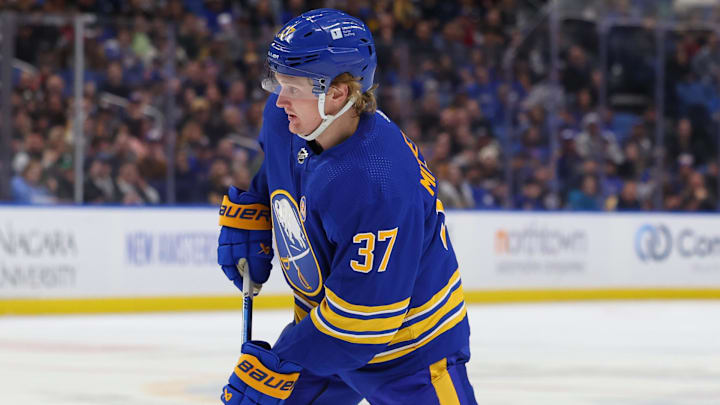The Sabres can afford to keep a youngster like Mittelstadt around
Per Cap-Friendly, the Sabres still have more than enough cap space to extend Mittelstadt, even if such an extension isn’t long-term. With such a high amount of cap space to go with a rising salary cap, the only logical thing the Sabres can do right now unless they get a mind-blowing deal that includes established talent mentioned previously is to sign Mittelstadt to an extension.
Again, this doesn’t need to be a seven-year deal, as has been the case with other forwards plus a few defensemen. They can get away with a bridge, then sign Mittelstadt long-term sometime around the 2027-28 season, or if they just gave him a two-year deal, the 2026-27 season.
Plus, Mittelstadt also won’t take up a roster spot that could go to a prospect like Kulich, as Victor Olofsson, Zemgus Girgensons, and Kyle Okposo, at minimum, will likely end up somewhere else either through a trade or via free agency should other teams reach out to them.
This will help alleviate some of that crowded prospects pool and allow the Sabres to keep Mittelstadt around. It also won’t hamper inevitable extensions for players like Jack Quinn and JJ Peterka, as their respective contracts expire following the 2024-25 season, allowing the Sabres to keep their incumbent core.
